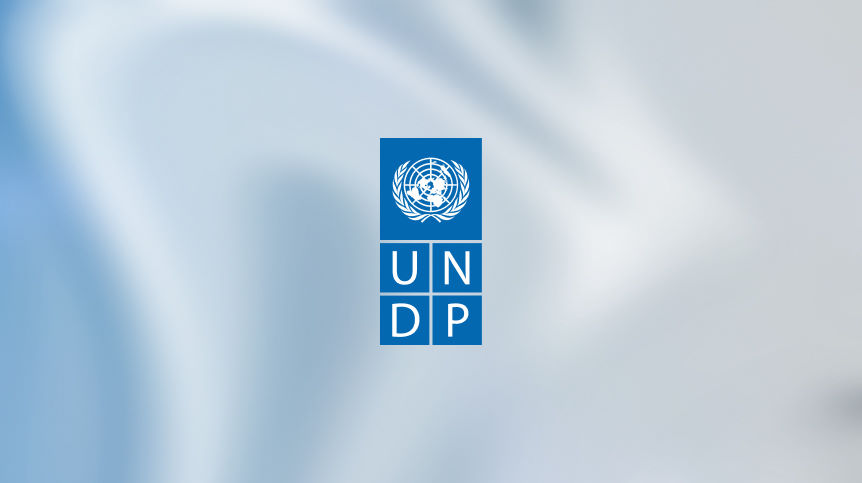25-year-old Lawan Yaru from Bama, Borno State of Nigeria, joined his first official football league through an initiative supported by UNDP and the EU ‘Peace through Sports Engagement’ which aims to deepen reconciliation and reintegration. Photo: UNDP Nigeria
A football jersey can represent more than being part of a team – it can symbolize unity, cohesion and can often be used to achieve a social change. 25-year-old Lawan Yaru from Bama, Borno State of Nigeria, joined his first official football league through an initiative supported by the United Nations Development Programme (UNDP) and European Union (EU) ‘Peace through Sports Engagement’ which aims to deepen reconciliation and reintegration. This initiative sought to use sports, its symbolism, its unifying principles, and its multiple benefits as a way to promote social cohesion among youth to help address stigmatization and internal community crisis.
As peace is gradually returning to communities which have been impacted by the crisis that struck north-east Nigeria since 2009, former members of the Non-State Armed Group (NSAG) who were once abducted and lived for extended durations of time under the authority of their captors are now rehabilitated and have reintegrated back to their communities to restart life. Although this process is helping with the return of individuals to their respective homes, the difficulty, trauma and impact of the longstanding conflict has affected many. This development has often challenged the acceptance by some community members of this process as some still feel uneasy with their return.
The Peace through Sports Engagement project is helping people rebuild intercommunal trust, heal from the effects of the conflict, and cultivate tolerance which are all a critical component of social cohesion.
Lawan reflected that at first, the return added strife and internal crisis within the community:
“When former NSAGs started returning to Bama, I felt that they didn’t have the right to live in the same community with us and so many others felt the same way,” he said. “We refused to have any contact with such individuals”.
With the introduction of sports activities in Bama, the community has continued to slowly see a change in perception, helping to build unity and mutual trust among its residents. This has proved the importance of sports as a tool to promote social inclusion by creating a sense of shared identity and companionship among groups that were once inclined to treat each other with violence and hostility.
Lawan shares that through the football league, his friends and others now have a reason to connect. “Right now, we engage very well with the surrendered NSAG because we play football together and it has helped to change our perspective on the importance of peace and unity in a community”.
For Lawan, the level of trust and unity that have been formed among residents in the community since the inception of the programme is a proof that sports indeed binds people and brings peace and communal living.
To date, over 15 football teams have been formed across three locations in Borno State, providing a platform for peace and stability as well as an important tool to prevent other community members from joining violent extremist activities. Teams mean bonds, bonds mean performance, performance yields friendship, friendships extend beyond the community, spectators see the unity of purpose as transformation, a goal is celebrated by friend and foe alike. Healing takes root.
As he put on his football jersey and prepared for the next game, Yara smiled and shared, “We never thought we could relate so well, but it is happening, and we are happy. It is my hope that this will also encourage others in the region to surrender and embrace peace.”

